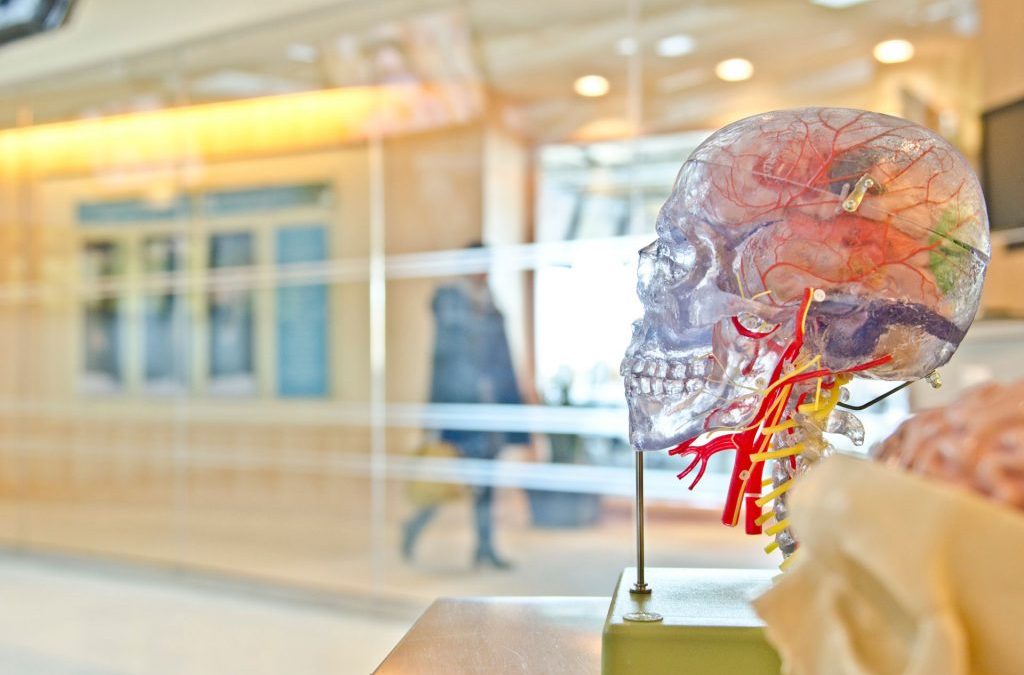Understanding concussions: conventional treatment, functional medicine approaches, and the gut-brain connection
Concussions are not uncommon. Estimates suggest that 3.8 million concussions occur annually in the United States during competitive sports and other recreational activities. Worryingly, as many as 50 percent of concussions go unreported. Also, concussions occur off the field, too – car accidents and falls can produce enough decelerating force to result in a traumatic brain injury.
For some, symptoms of a concussion subside within hours or days. But for others, they linger for months, years, or the rest of their lives. Severe headaches, dizziness, nausea, and difficulties with memory can make day-to-day activities challenging, if not impossible. To make matters worse, many are told by doctors that their brain is healthy, normal, entirely without structural damage.
In a previous article, I discussed the differences between structural and functional traumatic brain injuries: structural being the obvious damage that shows up in CT and CAT scans, and functional being the invisible damage that impacts how the brain operates. I outlined several ways to test for functional brain injuries and provide sufferers with an accurate diagnosis.
But diagnosis is just the first step in redefining your health trajectory – it helps you understand and gives your story meaning. This article will look at the next steps and demonstrate why a functional medicine approach can liberate those with post-concussion syndrome.
The short-fallings of conventional neurology in concussion treatment

Whether you’re in New York City or small-town Wisconsin, your local neurologist, while exceptionally intelligent, is likely not practicing functional medicine as I do. What does that mean? In short, your doctor simply isn’t trained to identify the root causes of illness.
The conventional system that prevails in modern medicine is geared toward making a diagnosis and assigning one of a few available treatments. The toolbox is small and typically involves drugs that address symptoms, not the illness itself.
If you’ve suffered a concussion, you can take headache medicine for your headaches, sleeping pills for your sleep difficulties, and antidepressants for your mood changes. What happens when you stop taking these medications? The symptoms return. Plus, folks who have had pretty nasty concussions don’t find conventional drugs very useful, in my experience.
Rarely, surgical intervention occurs. Rehabilitation therapies – physical therapy, occupational therapy, speech therapy, and so on – are also utilized in treatments. They can be helpful and supportive, but they don’t have the power to turn the ship around. We need to think bigger.
Functional medicine and holistic concussion treatment
Traditional treatments for concussion syndromes are unsatisfactory – that is a lived reality for many across the US and the world. But there are many of us in the holistic medicine space working on mapping out more effective, more permanent treatment options.
Functional medicine-orientated practitioners and regenerative medicine practitioners involved in STEM cell treatments seek to understand concussions and post-concussion syndrome more deeply. We want to know what is actually happening in the brain that causes headaches, insomnia, memory difficulties, dizziness, personality changes, and light and sound sensitivity.
Advances in medical knowledge have taught us that pathways are activated when a concussion occurs in a part of the brain called the limbic system. The limbic system oversees inflammatory responses, which can be measured by tracking chemicals called cytokines.
Inflammation is a natural response. Initially, it’s protective. If your body did not respond with inflammation following a sudden deceleration (such as jerking forward during a car accident or bumping your head), you’d likely drop dead immediately. So, when the limbic system decides (this all happens unconsciously) that the body is in danger, it activates its defense system by producing inflammatory signals.
So far, so good.
But what happens when the limbic system fails to switch off its defense? Inflammation – and the related symptoms – linger.
Why post-concussion syndrome affects some but not others
The aftereffects of a concussion don’t exist in a vacuum. Two people could live through the exact same accident, and one could recover within days.
The other could continue suffering for their lifetime.
Each of us carries life baggage, contributing to underlying, subtle, almost indetectable forms of inflammation. This could set us up to feel better within days following a concussion or be symptomatic for years.
As a functional medicine neurologist, my goal is to unpack that inflammation, identify the causes of inflammation, and help my patients switch off their inflammatory responses. By addressing the root causes, we can reduce or eliminate life-limiting symptoms.
What drives inflammation in the brain?
Brain inflammation is a fascinating topic, and research has shown that the gut microbiome, among other things, plays a central role.
The gut microbiome helps signal cells in the brain called astrocytes. When the limbic system’s inflammatory response has done its job, and the body is perceived to be out of danger, the gut microbiome tells astrocytes to turn off inflammation.
Suppose you experience a concussion and have pre-existing imbalances in the microbes that inhabit your gut. In that case, these imbalances could influence the pattern of inflammation in the brain that prevents full recovery.
The gut-brain connection represents just one facet of the big picture but is a fantastic example of the body’s interdependencies. Our many systems do not function in isolation – they affect one another.
Take the first step on your journey toward health and vitality
I know how frustrating it can be to bounce from doctor to doctor only to be told that there’s nothing wrong or nothing more they can do. I know it can feel debilitating to rely on drugs to feel some sense of normalcy. My team and I are here to give you the answers you deserve, to give your experience meaning, and to pivot your trajectory toward health and vitality.
Take the first step today and schedule your free consultation. We’d be more than happy to answer any questions or address any concerns.

